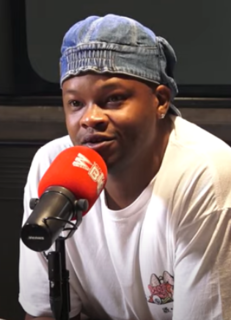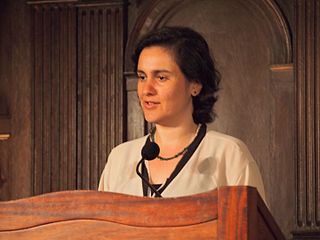A Quote by Sarah Dessen
But the original was there as well—more jaded and rudimentary, functional rather than romantic. It fit not just the yellow house but another door, deep within my own heart. One that had been locked so tight for so long that I was afraid to even try it for fear of what might be on the other side
Related Quotes
I just love how everyone with that Motown sound seemed to come from a two-block radius from the actual original location. The original location was a house, and then when they outgrew it, they bought the house next door and the house next door and the house next door until they had seven houses on the same lot.
If we have plain old ordinary fear then we are within reach of a solution. Fear has been with humankind for millennia and we do know what to do about it-pray about it, talk about it, feel the fear, and do it anyway. Artistic fear, on the other hand, sounds somehow nastier and more virulent, like it just might not yield to ordinary solutions-and yet it does, the moment we become humble enough to try ordinary solutions.
Every human being lived behind an impenetrable wall of choking mist within which no other but he existed. Occasionally there were the dim signals from deep within the cavern in which another man was located so that each might grope toward the other. Yet because they did not know one another, and could not understand one another, and dared not trust one another, and felt from infancy the terrors and insecurity of that ultimate isolation there was the hunted fear of man for man, the savage rapacity of man toward man.
I remember when I came out of an exam thinking I had done well and then I had a clue that maybe one answer was wrong, I remembered that I rather stop knowing, stop thinking about it, appreciating life instead. So first, it was just a memory. But then I realized that in life, it's a much more general sentiment - that instead of waiting for other people's judgment, I'd rather focus on my own feelings, that everything is fine. To go on with my life rather than anticipating other people's judgements that might be negative.
That’s how Ptolemy imagined the disposition of his memories, his thoughts: they were still his, still in the range of his thinking, but they were, many and most of them, locked on the other side a closed door that he’s lost the key for. So his memory became like secrets held away from his own mind. But these secrets were noisy things; they babbled and muttered behind the door, and so if he listened closely he might catch a snatch of something he once knew well.
We're just afraid, period. Our fear is free-floating. We're afraid this isn't the right relationship or we're afraid it is. We're afraid they won't like us or we're afraid they will. We're afraid of failure or we're afraid of success. We're afraid of dying young or we're afraid of growing old. We're more afraid of life than we are of death.
But I'd rather help than watch. I'd rather have a heart than a mind. I'd rather expose too much than too little. I'd rather say hello to strangers than be afraid of them. I would rather know all this about myself than have more money than I need. I'd rather have something to love than a way to impress you.
Even very smart people can try to shoehorn new information that just doesn't fit into an existing paradigm.For a long time the story that we've been telling ourselves is that humans are just another animal. We evolved from other animals and our place in the universe isn't particularly special. What I'm trying to convey in my book [The Sixth Extinction] is that we are unusual.
Gold is a way of going long on fear, and it has been a pretty good way of going long on fear from time to time. But you really have to hope people become more afraid in a year or two years than they are now. And if they become more afraid you make money, if they become less afraid you lose money, but the gold itself doesn’t produce anything.
Hugh and I have been together for so long that in order to arouse extraordinary passion, we need to engage in physical combat. Once, he hit me on the back of the head with a broken wineglass, and I fell to the floor pretending to be unconscious. That was romantic, or would have been had he rushed to my side rather than stepping over my body to fetch the dustpan.
Perhaps down in his heart Okonkwo was not a cruel man. But his whole life was dominated by fear, the fear of failure and of weakness. It was deeper and more intimate that the fear of evil and capricious gods and of magic, the fear of the forest, and of the forces of nature, malevolent, red in tooth and claw. Okonkwo’s fear was greater than these. It was not external but lay deep within himself.
They reached the carriage house. When she turned the knob, he got all critical again. “Why isn’t this door locked?” “It’s Parrish. There’s not much point.” “We have crime here, just as any other place does. Keep this door locked from now on.” “Like that’s going to stop you. All you’d have to do is give it one good kick, and – “ “Not from me, you ninny!” “I hate to be the one to break the bad news, but if they find my body, you’re the one with the biggest grudge.” “It’s impossible to hold a rational conversation with you.
When we sit, we open our own treasure house. Rather than do this, however, most of us first seek to find the treasures another person can provide. We calculate their value to us. When we approach relationships in this manner, we are coming as beggars, seeing the other as a source of supply. When we can enter a relationship with our treasure house already open, there is no end to the wonders we can find, both within and between ourselves and another.







































